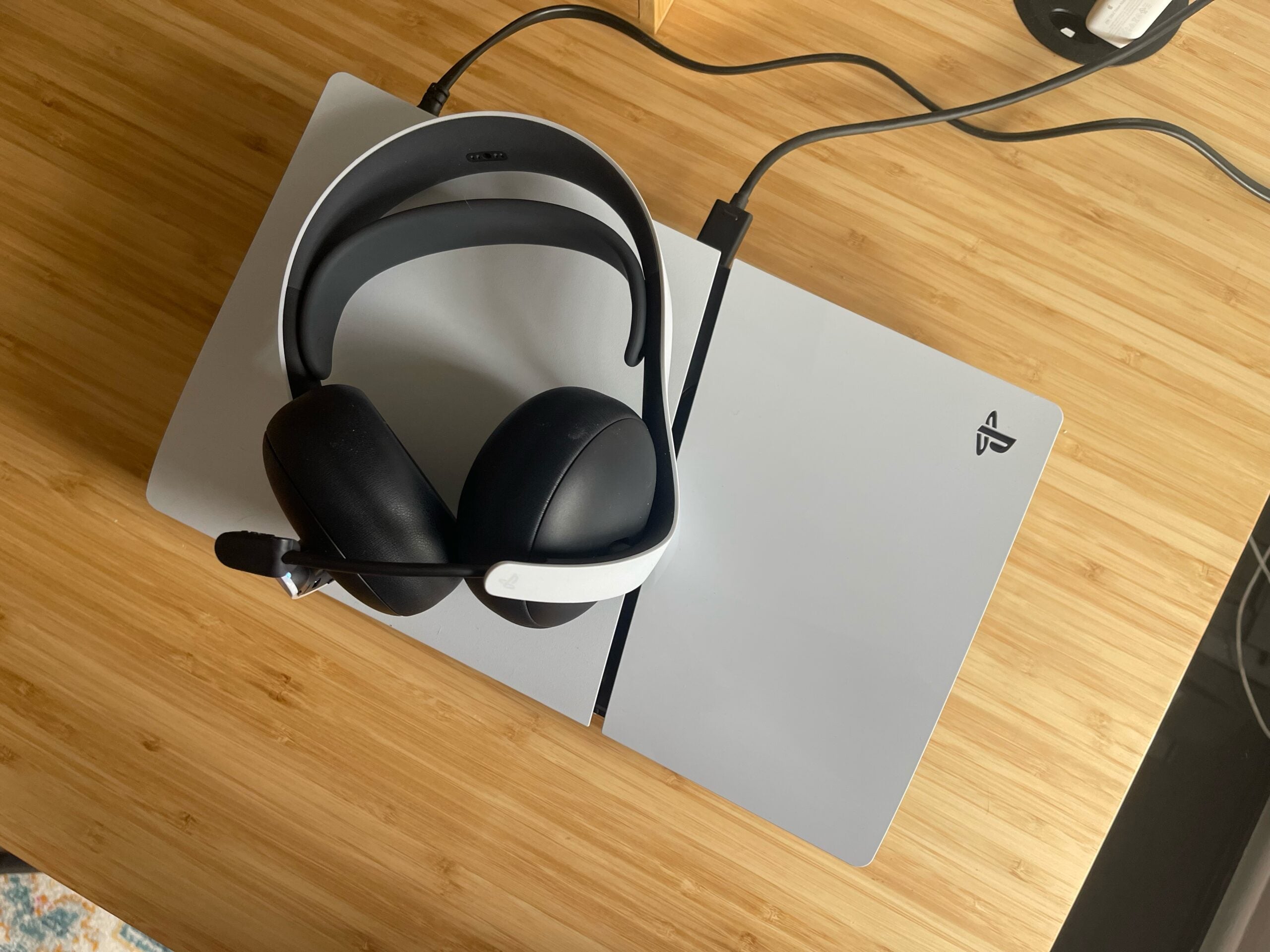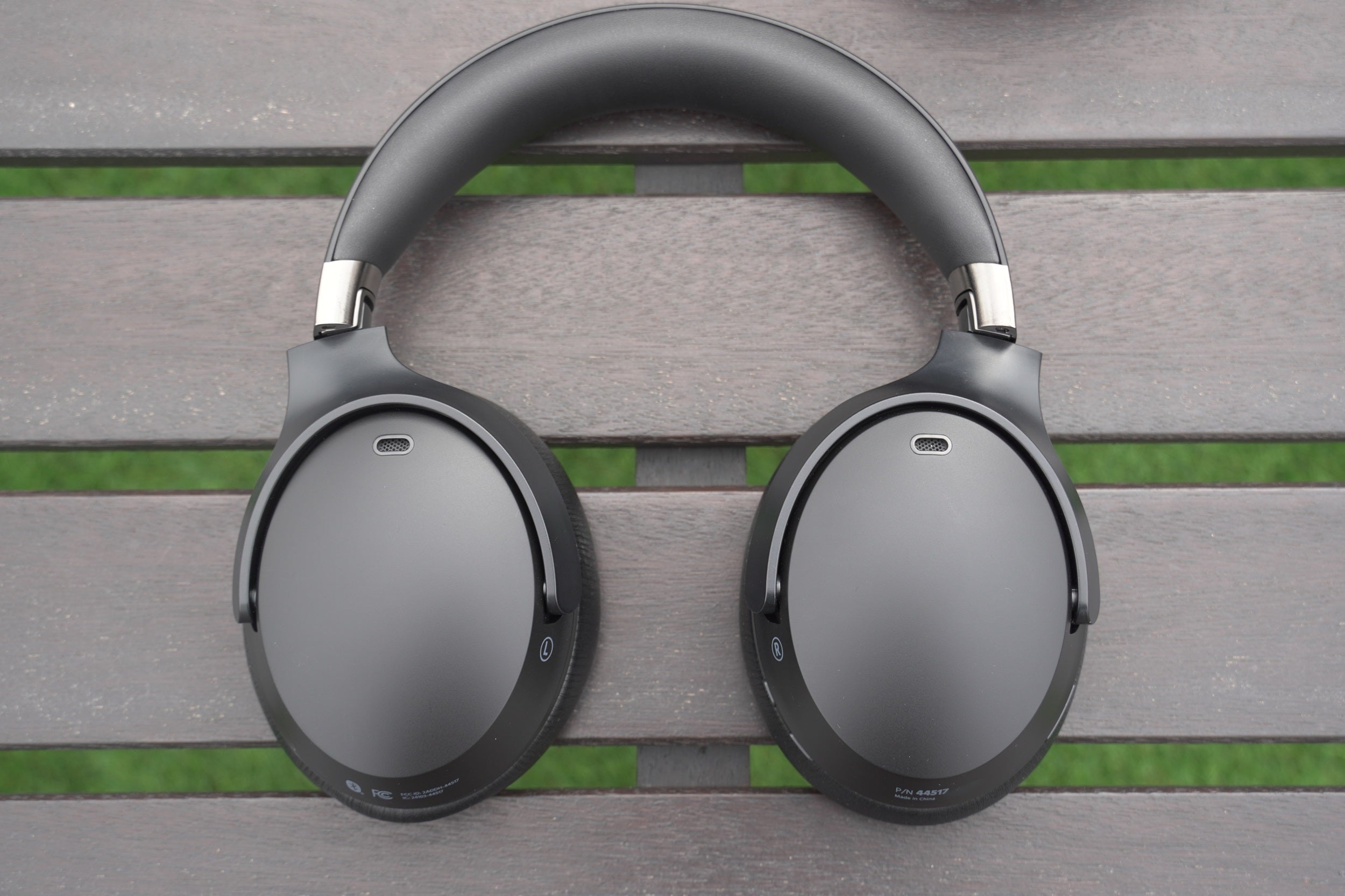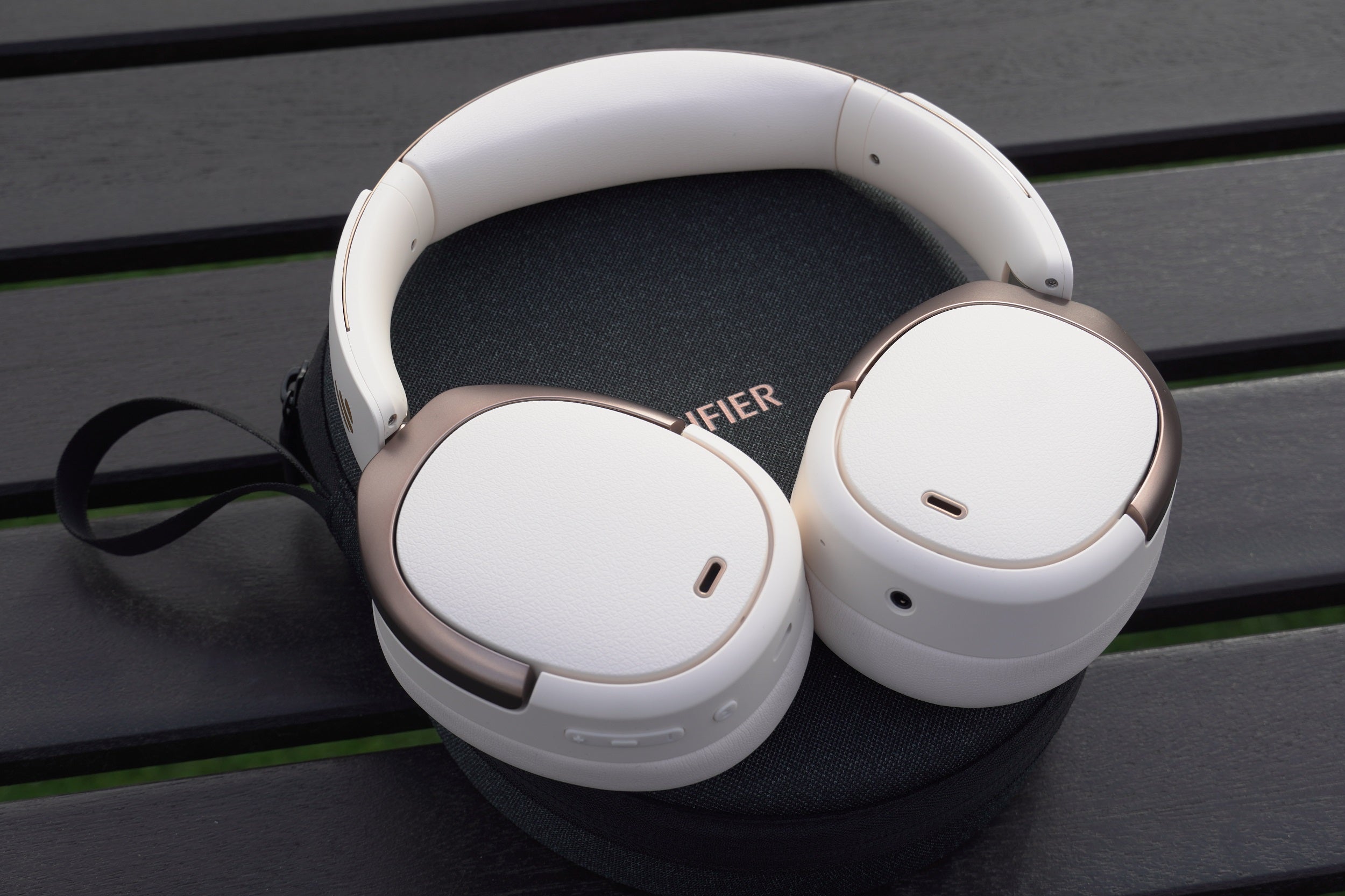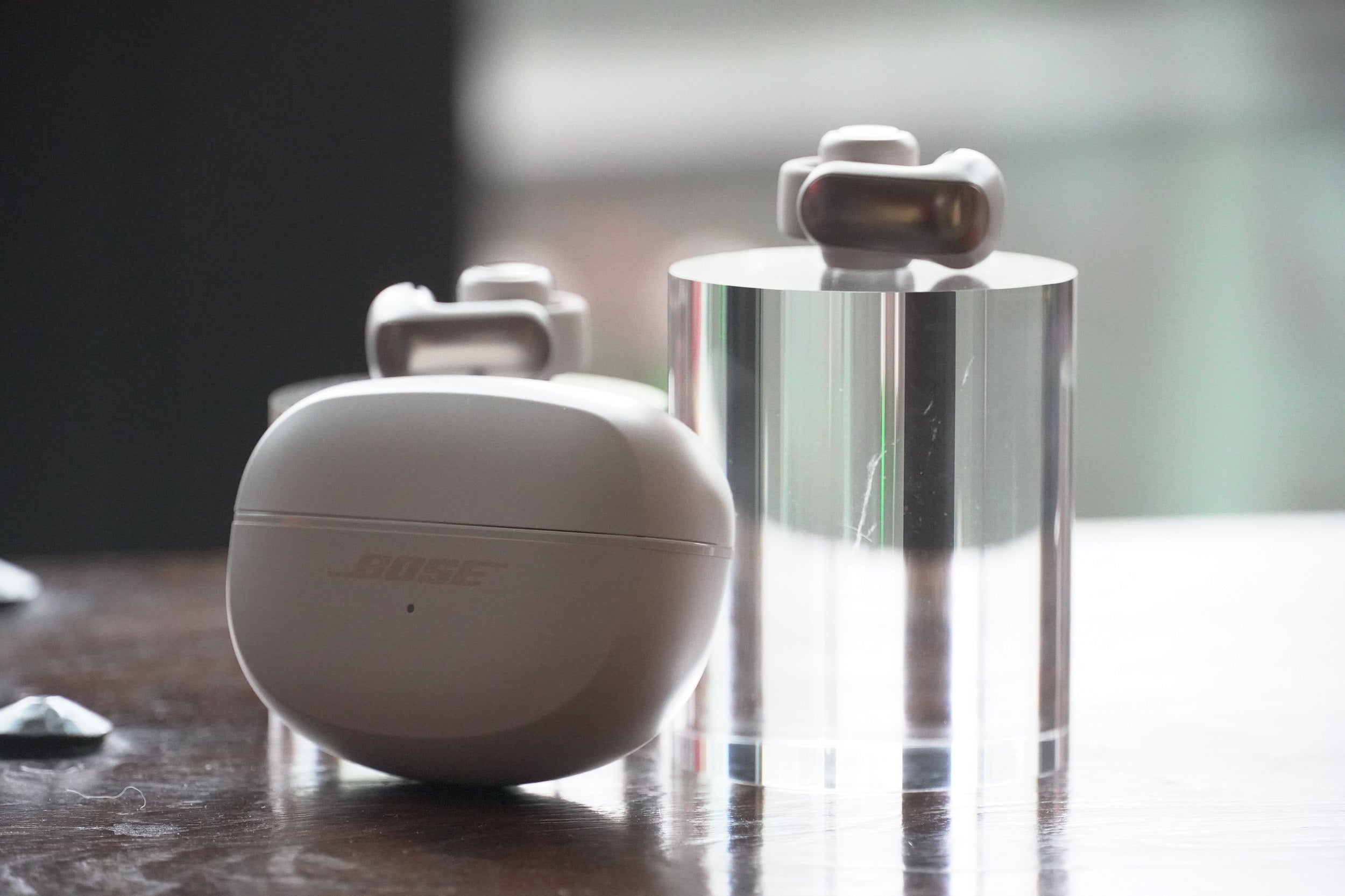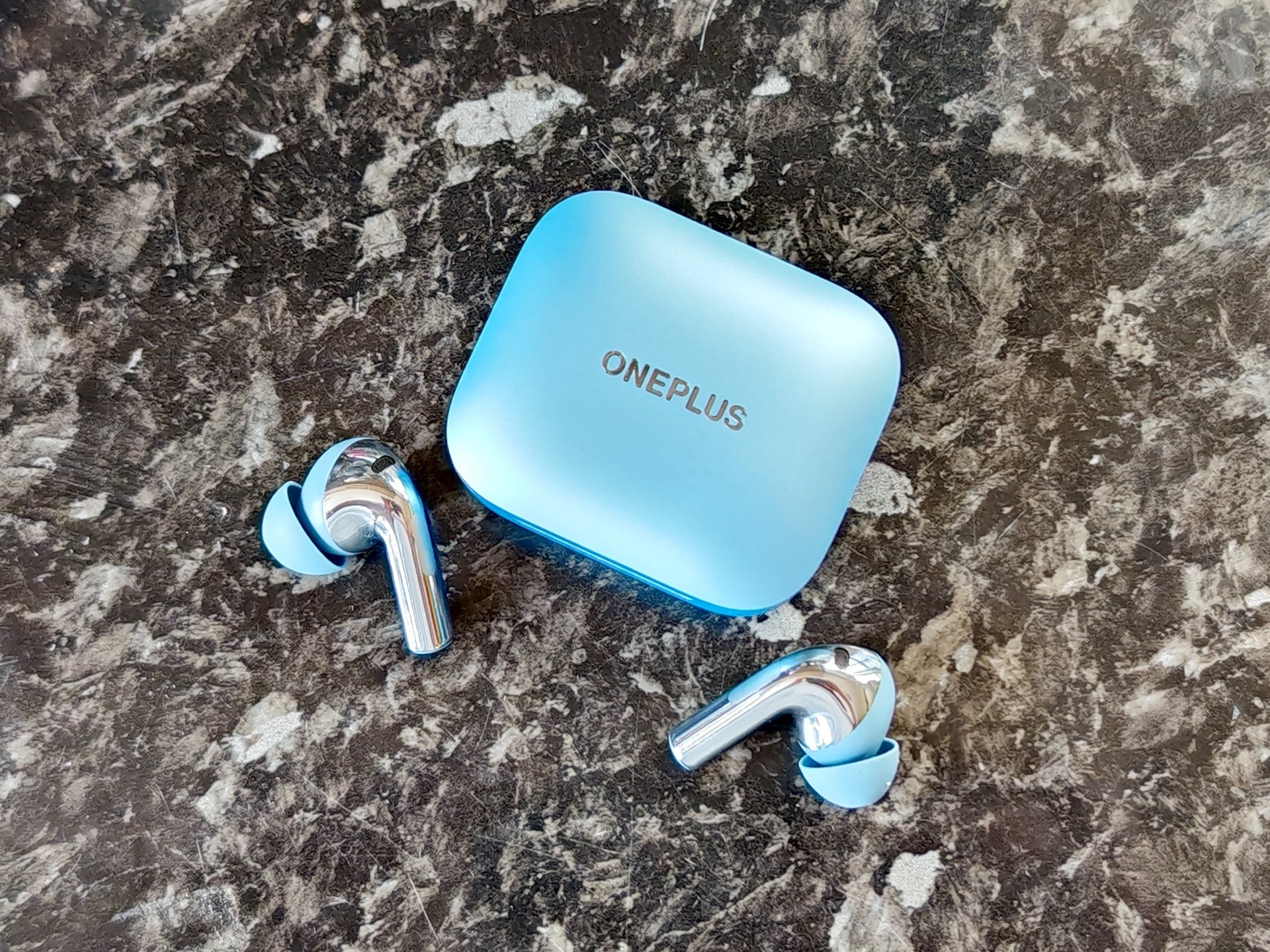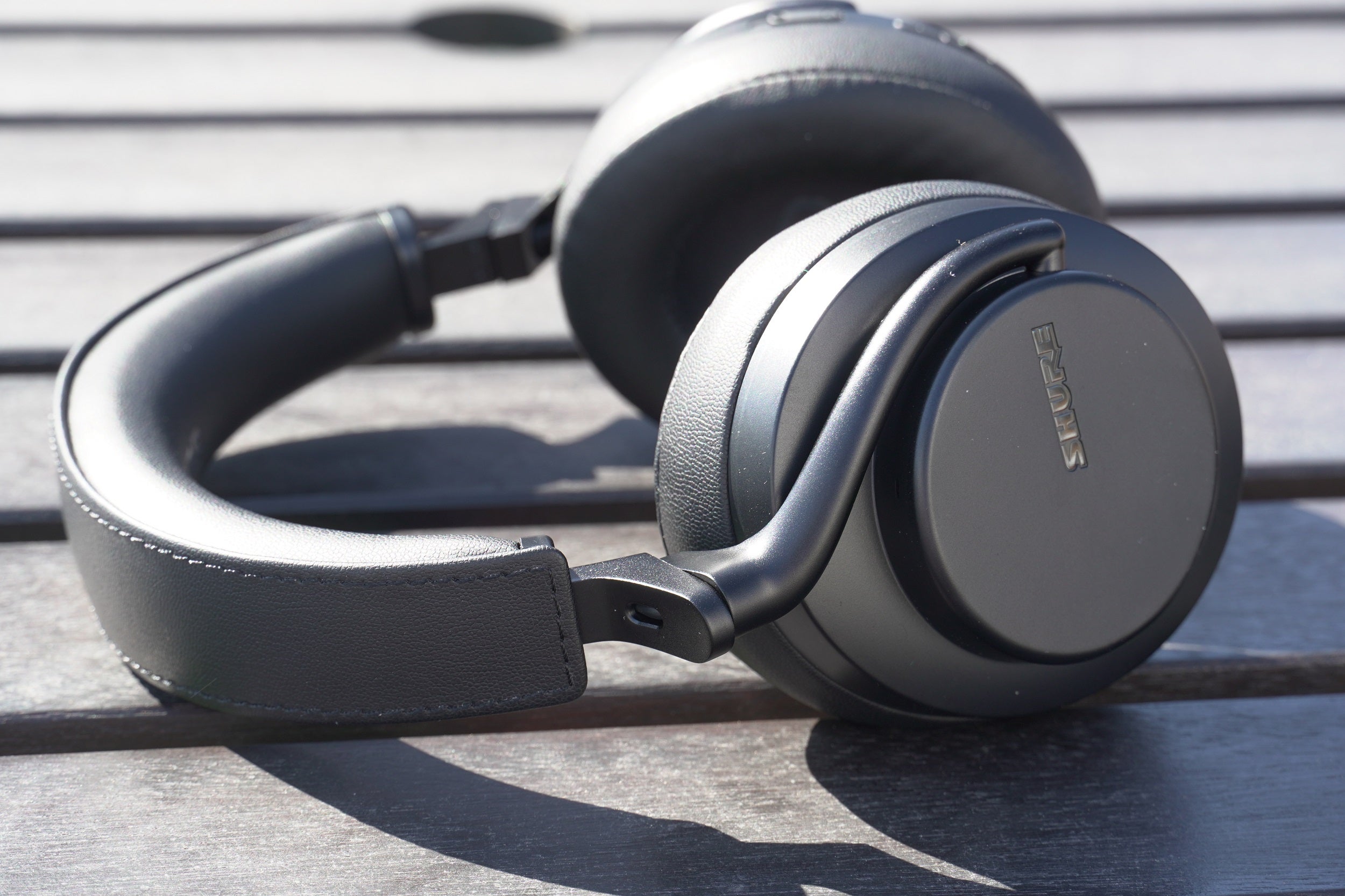Soundcore Space One Review
A stylish and effective pair of budget ANC cans


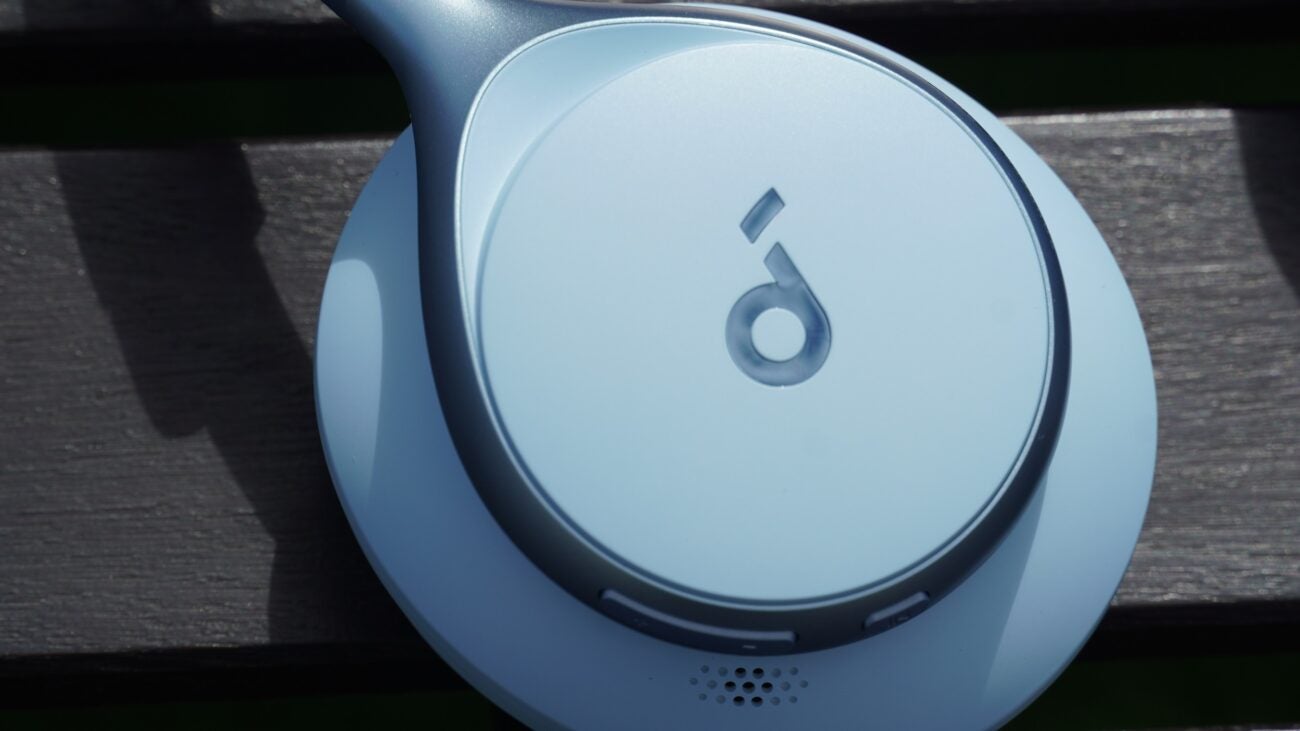



Verdict
Stylish affordable headphones with good sound and a mostly effective noise-cancelling performance, the Soundcore Space One offer an effective all-round performance for less than £100/$100.
Pros
- Comfy to wear
- Stylish looks
- Effective (enough) ANC
- Good clarity and detail with music
- Affordable price
Cons
- EQ options are rubbish
- ANC can struggle in very noisy areas
- Call quality disappoints
Key Features
- Battery life40 hours with ANC, 55 without it
- Wireless Hi-Res AudioSupports Sony’s LDAC for higher quality sound
- Hybrid ANCCustomisable noise-cancelling performance
Introduction
At a time where cost-of-living is the phrase on many peoples’ lips, it’s no surprise that bargains are highly sought after. The Soundcore Space One are headphones that, on paper, suggest you don’t have to lower expectations as far as performance is concerned.
These, and several other over-ears, have pinched features normally seen on premium headphones. From LDAC wireless streaming, to Hybrid Adaptive Noise-Cancellation, and longer battery life, the ace these headphones have is that they’re available for less than £100/$100.
The specification looks good on paper, but it comes down to real-world testing where we’ll see if the Soundcore Space One make good on their promises.
Design
- Lightweight design
- Physical controls
- Foldable
Holding the Soundcore Space One in my hand, the first thing I notice is how lightweight they are. There’s no information on the Soundcore website about how much they weigh, but a look online suggests around 260g, which is slightly heavier than the Bose QuietComfort 45 (£319 / $329).
The padding on the earpads and the underside of the headband is made from a nice, soft material that provides a comfortable point of contact, and the clamping force isn’t too tight. There’s leeway to adjust the placement of the earcups on the head, avoiding any uncomfortable pressure on the head.
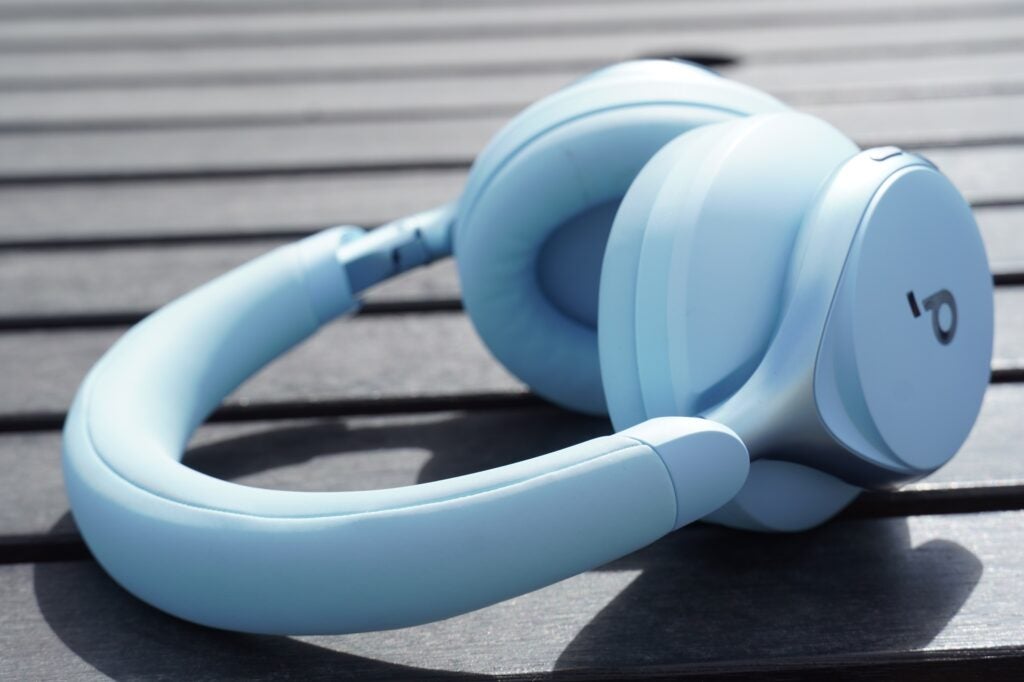
The Space One is collapsible for folding away (there’s a pouch rather than case to stow them away in), and from a visual perspective, effort has been made to make these stand out with distinctive finishes (sky blue, latte cream, and jet black) as well as the lettering on the earcups. Though the linkages and earcups are plastic, the build quality feels good enough for prolonged use.
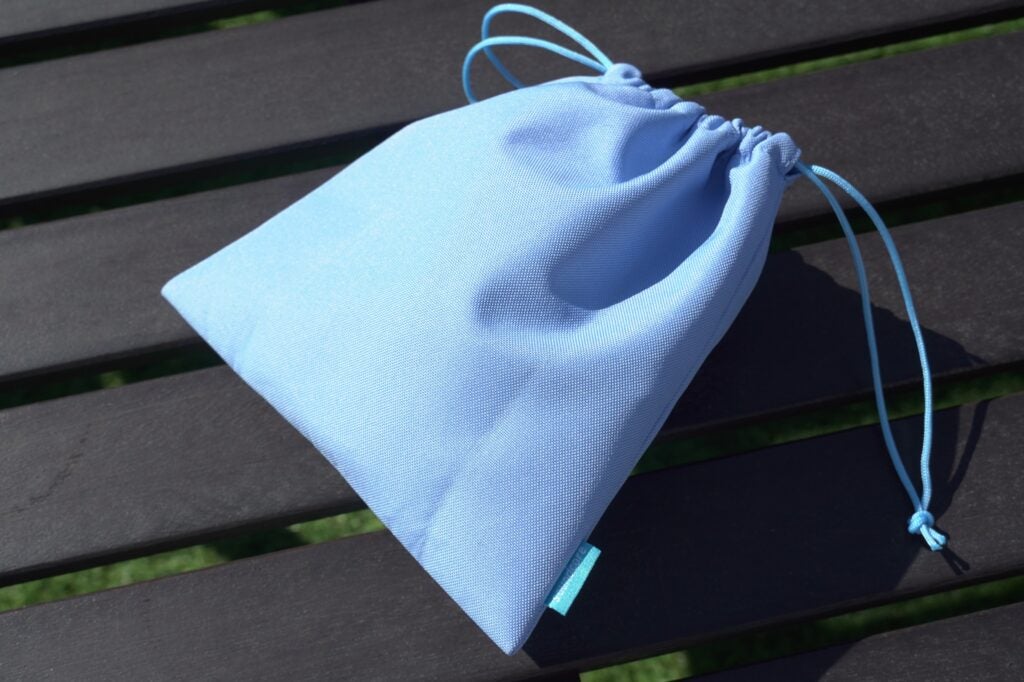
The physical controls aren’t the easiest to locate. I find I’m often fumbling to the side of the earcup as the buttons are further away from the main area. There are no touch controls with physical buttons covering noise-cancelling modes, playback, volume (or track skipping), and power.
A 3.5mm jack and USB-C port for charging make up the rest of the design features.
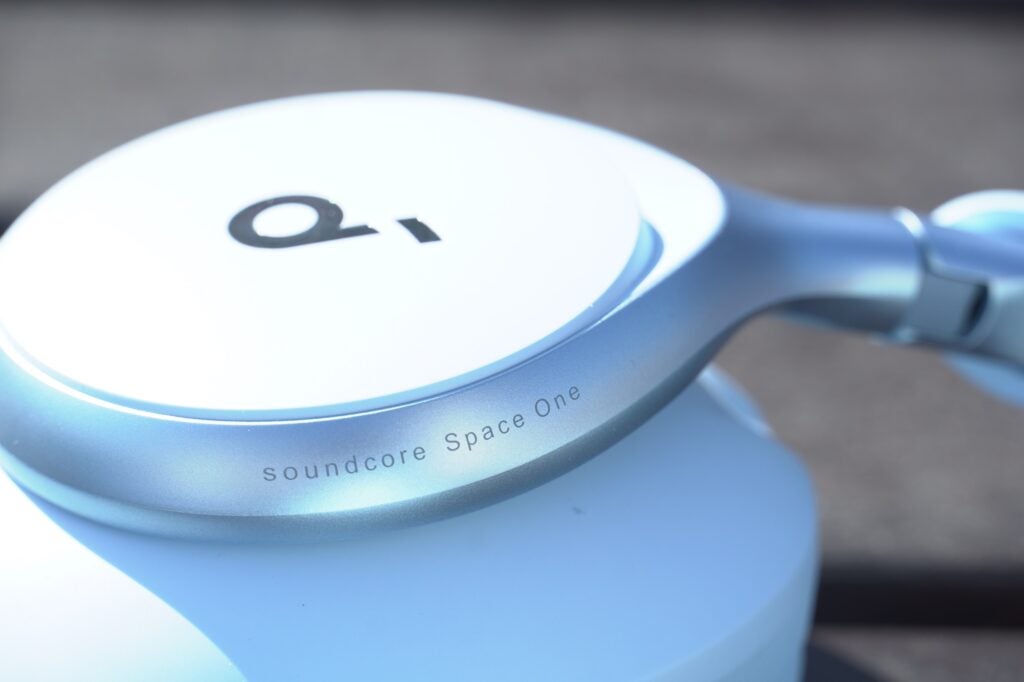
Features
- LDAC support
- Soundcore app for customisation
- Hybrid Adaptive Noise-Cancellation
The Soundcore Space One boasts Hybrid Adaptive Noise-Cancelling, which is not a feature often seen around this price. In most respects, the noise-cancelling performance is good but there are the usual caveats.
I would say the noise-cancelling hovers between solid and strong, depending on the environment you’re in. I’ve used the Space One on a plane and found them to be very good at significantly reducing cabin noise. I can still hear the hum of the air conditioning with music on, but I’ve not tested headphones that have managed to fully eradicate that noise anyhow.
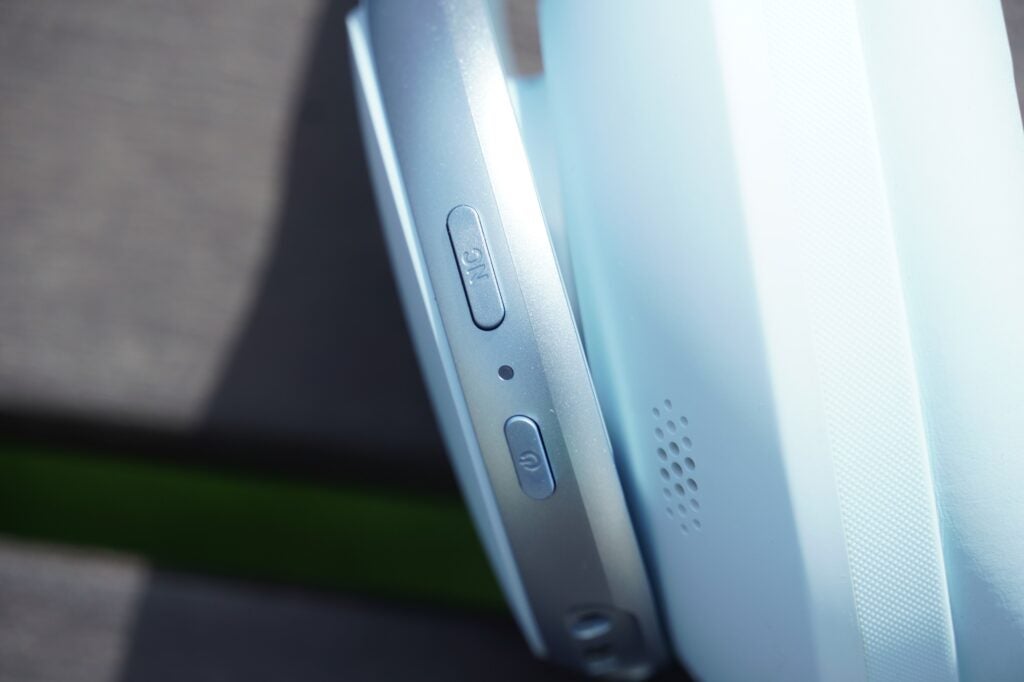
It can be strong at suppressing voices so they’re less audible, and it hollows out the sound of traffic as cars and buses so they’re less of a distraction. Both the design and the noise-cancelling combine well to silence any ambient noise, while the Wind Noise Reduction setting also effectively minimises any windy disruption.
It’s in noisier areas where the Space One struggles. Though it’s come through use on the Victoria, Northern, and Jubilee lines in a mostly positive manner, there are times where the noise levels simply get too much for the headphones to cope with.
Like the Sennheiser Accentum Wireless (£159 / $179), it also doesn’t take too kindly to the potholes of London’s roads when on a bus, and I’ve found there’s weird interference from time to time; an increasingly loud, high-pitched sound the headphones are prone to picking up.
The transparency mode is natural enough in capturing the ambient sounds without sounding noisy. Given Touch to Enable and Speak to Enable are mirror versions of Sony’s Quick Attention and Speak to Chat, my guess is that Soundcore uses Sony’s ANC tech. Both features are integrated well, and they’re features that not even Sony’s own affordable CH-WH720N has.
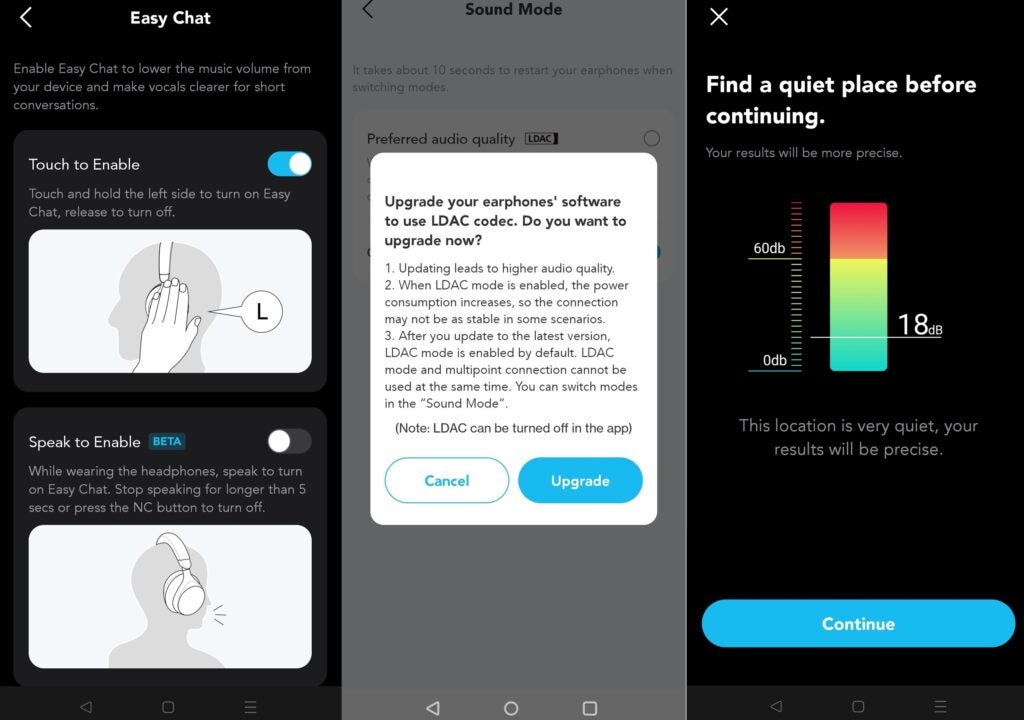
Wireless support is Bluetooth 5.3, and you can stream in SBC, AAC, and LDAC. The wireless connection is strong in AAC mode with only a few jitters walking through the Waterloo station concourse.
When LDAC is engaged, there’s no Bluetooth multipoint available, so you won’t be able to connect to two devices simultaneously. Android users benefit from Google Fast Pair.
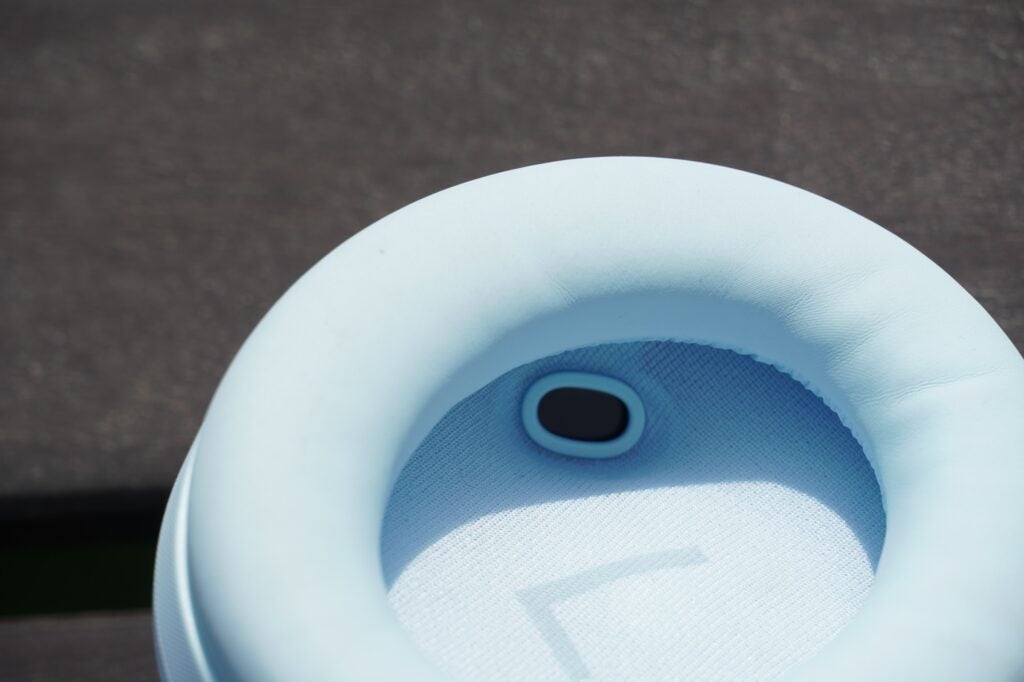
The Soundcore offers plenty of ways to customise the headphones’ behaviour. You can fine tune the noise-cancellation/transparency, toggle on Wind Noise Reduction, (slightly) customise the controls, limit the headphone’s volume level (to below 90dB), switch listening modes (LDAC or AAC), and enable wear detection which is a prompt for pausing and restarting music.
It’s easy to use, instructive in its descriptions, and responsive. There’s not much to ask for aside from improving the EQ options – they disappoint in that there are so many, but the difference between them is minor.
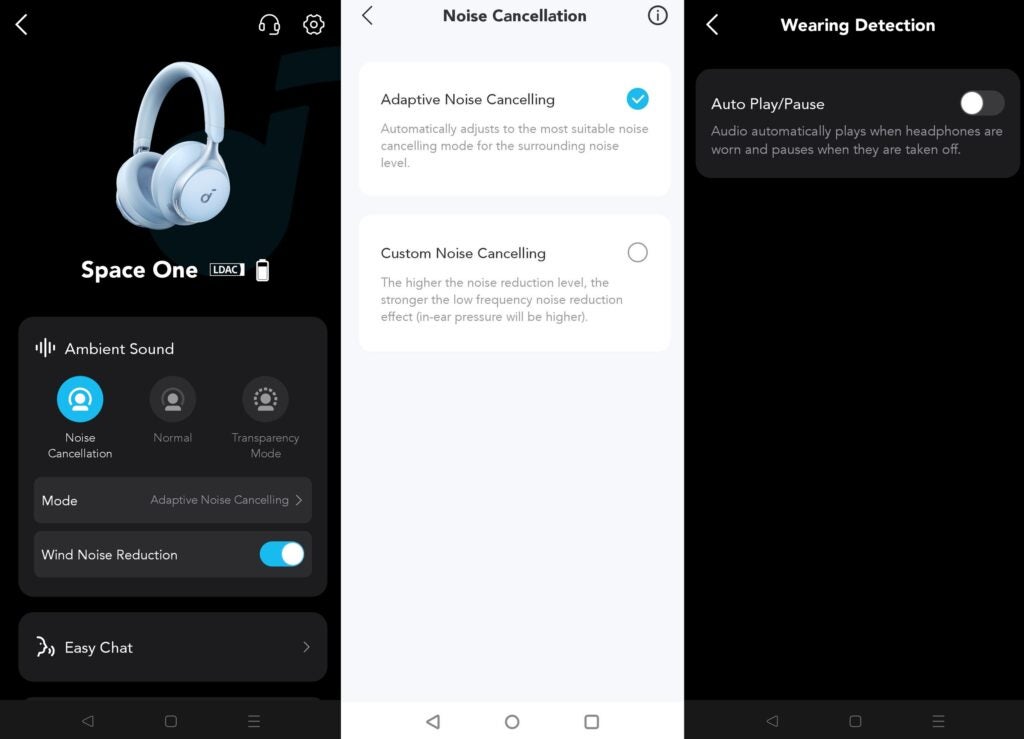
You can assign the Bass Booster EQ (which slightly improves bass response) to the physical buttons, but that’s the only EQ option that can be added. You can also create a custom EQ but again, the differences aren’t too pronounced.
It’s the same with the HearID customisation. My EQ profile turned out to be almost no different to the Signature Soundcore EQ. So much for personalised hearing.
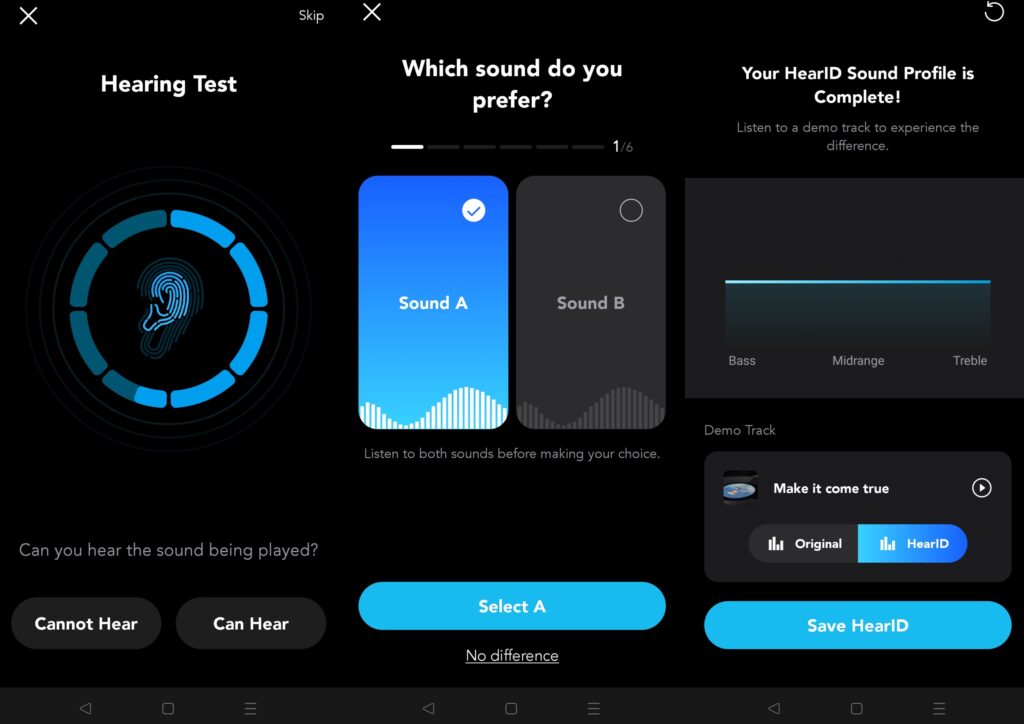
Soundcore claims a battery life of 40 hours with ANC on, and 55 with it off. The tests I carried indicate it doesn’t go as far as Soundcore claimed, with around 30 hours available (in the headphone’s AAC mode). That’s still long enough to hold water against premium options such as Sony WH-1000XM5 (£379 / $399) and better than the AirPods Max (£549 / $549).
Call quality is the weakest part of the Soundcore Space One’s feature set. Testing before and after an update that aimed to improve call quality, the Space One muffles voices and it’s hard to hear the person on the other end when there’s lots of noise.
Sound Quality
- Clear, crisp midrange
- Tempered bass performance
- Fairly flat-sounding EQ
There’s not much space to manoeuvre at the affordable end of the over-ear headphones market with so many options, but the Soundcore Space One’s emphasis on clarity and detail puts it ahead with a smoother, less detailed approach.
I wouldn’t describe the sound as particularly bass-oriented though. Listening to Busta Rhymes’ Touch It and depth and extension are lacking – Billie Eilish’s Bad Guy sounds a little flatter than I expected too. I’d describe bass as more on the tempered side.
If you’re after power and energy with the basslines, the Soundcore Space One’s sound is more balanced than forceful. In contrast, the Sony WH-CH720N (£99 / $149) offers more power in that area.
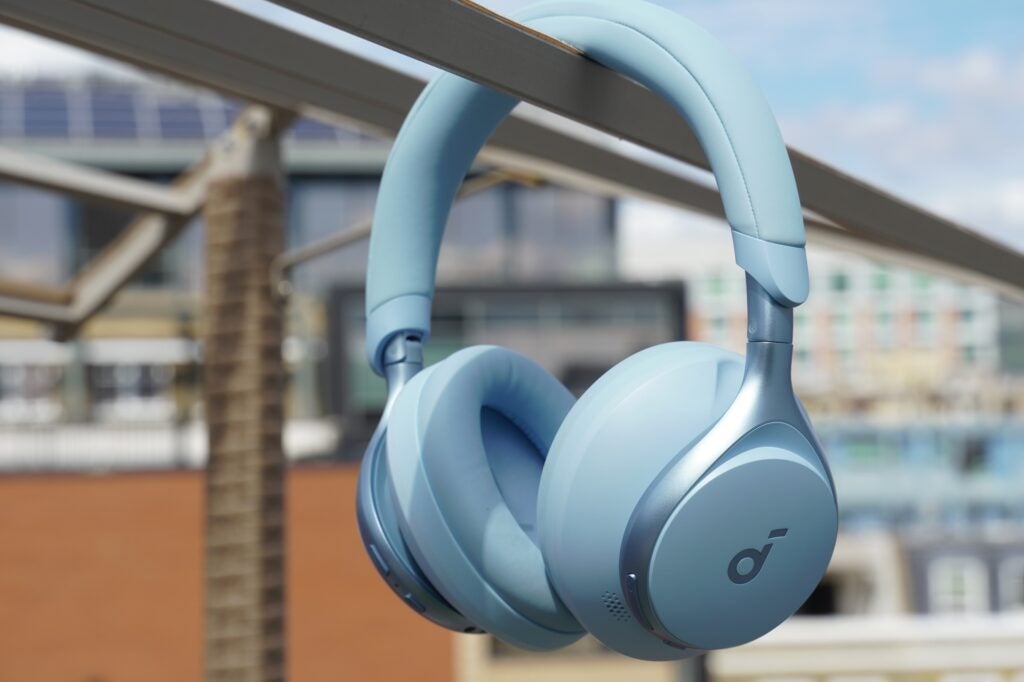
In terms of tuning, these headphones sound flat out of the box with only a slight sense of dynamism. Treble sounds natural enough with GoGo Penguin’s Erased By Sunlight; sharp, clear, although a little on the thin side. The midrange is crisp too, and again there’s a slightly thin tone to midband frequencies that’s noticeable with singers’ voices. These headphones lack a little weight to their sound.
Compared to the (less expensive) Monoprice Dual Driver Headphones though, the Space One streaks ahead with better levels of clarity and sharpness across the frequency range. While the Monoprice makes music sound like it was recorded in a fog, the Soundcore’s detail levels are higher, with treble described in clearer and sharper terms.
Pitted against our award-winning Final UX3000 (£119 / $149), the Soundcore bests that well-regarded model too. With both headphones in their respective ANC modes the Soundcore is the clearer, more detailed, and defined performer, especially in the midrange, while bass is punchier and weightier.
The Soundcore also stretches its legs in the treble department with a clearer performance of GoGo Penguin’s Atomised. There’s an appealing smoothness and richness to the Final, but it’s not as sharp or as defined as the Soundcore, which is the better all-round listen in its ANC mode.
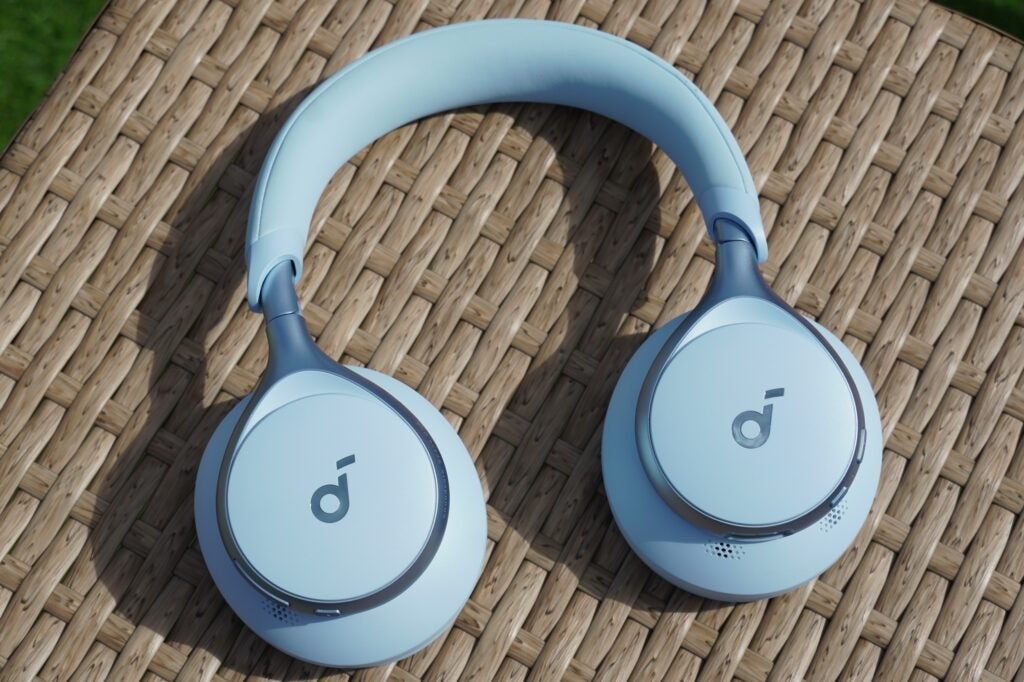
If you aim your sights higher there are better-sounding efforts that are available. The SoundMagic P60BT (£129 / $190) bests the Soundcore for clarity and detail, and comes across as the more natural-sounding of the two in its passive mode. Its sound features more energy and drive, extracts more detail from the midrange, describes music with more width and offers bigger bass.
The Soundcore is not as crisp or as insightful with its midrange delivery, but placing both headphones in their ANC modes, the Space One turns out to be the more natural-sounding with the SoundMagic registering as overly sharp. In the right mode, the P60BT sounds better, but its noise-cancelling isn’t as strong, which swings momentum back to the Space One for overall performance.
Latest deals
Should you buy it?
Good sound and ANC at a low price
There are caveats, but for less than £100 / $100 the Space One are an effective noise-cancelling pair of over-ears.
You call people on the telephone
Budget headphones aren’t great for call quality, but the Sennheiser Accentum Wireless are a step up for more money.
Final Thoughts
If you’re economical about your expenditure, then the Soundcore Space One are a strong pair of wireless headphones in a number of areas. They’re not necessarily the best in any category, but they’re consistent with a breadth of features and customisation options that only a few headphones at this price can match.
They sound good for the money – better than a few equivalent options around the same price, though the Sony WH-CH720N has more character to its sound. They offer good comfort levels with effective noise-cancelling (as long as you’re not expecting miracles), stylish looks, and a strong wireless performance.
There are weaker areas. Call quality disappoints, the EQ options bring little to the table, while battery life is long but not as extensive as advertised.
Nonetheless, if you’re after a pair of headphones below £100 / $100 the Soundcore Space One should be on your shortlist, if not near the top of it. Check out our Best Cheap Headphones guide for even more options.
How we test
We test every set of headphones we review thoroughly over an extended period of time. We use industry standard tests to compare features properly. We’ll always tell you what we find. We never, ever, accept money to review a product.
Find out more about how we test in our ethics policy
Tested across several months
Battery drain performed
Tested with real world use
FAQs
There’s Bluetooth 5.3 onboard, with support for SBC, AAC, and LDAC streaming codecs. Bluetooth multipoint is supported for connecting to two devices at once, but it’s not available when LDAC is enabled.

